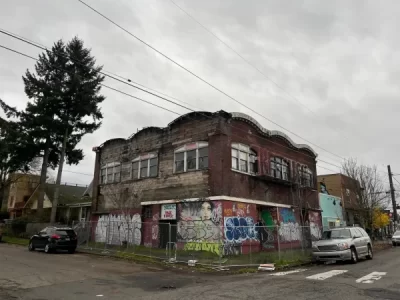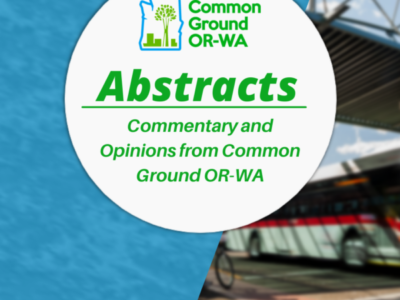Henry George’s simple idea to use the land-value tax to fight economic inequality could be worth another look, says Annika Neklason at The Atlantic. We have evidence you should see. Read more…
The 140-Year-Old Dream of ‘Government Without Taxation’
In 1879, a political economist argued that wealth derived from land value belonged to the American public. Today, economists are reviving interest in his ideas as a way to combat wealth disparities.
By Annika Neklason
The Atlantic
April 15, 2019
Excerpts:
The U.S. tax code is infamously complicated. Americans pay income taxes, payroll taxes, sales taxes, excise taxes, property taxes, real-estate taxes, estate taxes, gift taxes, capital-gains taxes, hotel taxes, sin taxes, luxury taxes, and more. But most have never paid a pure land-value tax—the type that followers of the political economist Henry George proposed in the late 19th century. Among all the complicated, unpopular, and inefficient taxes that have been implemented in the interim decades, George’s simple idea to tax land rents to fight economic inequality could be worth another look.
George observed in his 1879 book Progress and Poverty, that land—separate from any buildings constructed on it—generates wealth not through individual effort or ingenuity, but as a result of societal change. Already well-off landowners reaped benefits in the form of rising land values. George prescribed the land-value tax as a way of putting some of that collectively produced wealth back toward the commonweal. His supporters advocated eliminating all other taxes and raising revenue solely through this tax, which they viewed as the most equitable and just way of funding the state.
George’s idea has retained a base of support among progressive reformers and economists for more than a century. Now interest in the land-value tax, and its promise to reduce inequality and promote economic justice, has been revived.
With wealth disparities again widening and land values and housing prices skyrocketing in certain areas, Joan Youngman, senior fellow at the Lincoln Institute of Land Policy, says George’s appeal for greater economic inequality “resonates the way it did in the Gilded Age”—and it’s found vocal supporters among economists. In June 2017, three UCLA professors made the case in a Los Angeles Times op-ed that land-value taxes should be used to finance affordable housing in California: “Housing scarcity delivers unearned wealth to people who own housing, and it imposes unwarranted burdens on people who don’t. To solve our housing crisis fairly and effectively, we should tax that wealth and use it to ease those burdens.”
“A tax on the return to land, and even more so, on the capital gains from land, would reduce inequality and, by encouraging more investment into real capital, actually enhance growth,” wrote Nobel Prize–winning economist Joseph Stiglitz in 2015.
“From the economist’s perspective,” Youngman says, there’s also another argument for the tax: It’s uncommonly efficient. Most taxes, she says, “leave people worse off” because of the way they lead people to behave in the interest of avoiding or reducing taxation. She says land presents an appealing contrast, because it “is not the subject of individual effort or production” and “is in fixed supply,” and so could be taxed without changing behavior for the worse.
Youngman says this aspect of the tax is undervalued. “Sometimes the idea of doing no harm is very hard to convey as a rallying cry,” she says. “But it’s actually huge … actually improving people’s lives and improving economic well-being by not having a drag on the economy, by choosing a form of taxation that is efficient.” A pure land-value tax “would require a lot of political support” in order to create the systems needed to accurately assess unimproved value.
The land-value tax, when implemented, has almost never been adopted in its pure form or as a singular source of revenue. More popular variants include a two-rate tax such as the one used in Pittsburgh.
Comment:
Unlike a building, the lot on which it is situated has no production cost; the value of land is simply a measure of the benefits it provides. Those benefits are socially created; they are generated by public infrastructure and services, access to transportation, employment and shopping. Therefore, a land value tax is like a ‘user charge’ for the benefits society provides the landowner.
Common Ground OR-WA recently engaged the Northwest Economic Research Center at Portland State University to conduct a simulation analysis to determine if the tax shift effects of a conversion from Oregon’s present property tax system to a land value tax is a remedy to the inequities caused by the tax limitations that have been in effect since 1997. The study consists of models simulating a change to real market value assessments and land value taxation in two contrasting Portland communities.
Initial findings of this study confirm that under the current system of limited assessments, lower income neighborhoods in outer southeast Portland pay disproportionately higher taxes than inner northeast neighbors whose property values have been rapidly increasing. The models show that a change to a two-rate tax based on true market value assessments is slightly income progressive and results in a significantly more balanced distribution in tax burden.
Furthermore, multi-family developments of more than 4 units, because they have a higher ratio of building value to land value, will see significantly lower tax bills in both communities. Hence, the low tax rate on improvements encourages increased production of affordable housing. The high tax rate on land discourages land holding, releasing sites for development. Yes, George’s simple idea to use the land-value tax to fight economic inequality is worth another look!




